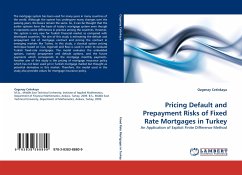A credit default swap (CDS) is a swap contract in which the buyer of the CDS makes a series of payments to the seller and, in exchange, receives a payoff if a credit instrument (typically a bond or loan) goes into default (fails to pay). Less commonly, the credit event that triggers the payoff can be a company undergoing restructuring, bankruptcy, or even just having its credit rating downgraded. CDS contracts have been compared with insurance, because the buyer pays a premium and, in return, receives a sum of money if one of the events specified in the contract occurs. However, there are a number of differences between CDS and insurance, for example: The buyer of a CDS does not need to own the underlying security or other form of credit exposure; in fact the buyer does not even have to suffer a loss from the default event.In contrast, to purchase insurance, the insured is generally expected to have an insurable interest such as owning a debt obligation; the seller need not be a regulated entity; the seller is not required to maintain any reserves to pay off buyers, although major CDS dealers are subject to bank capital requirements.







